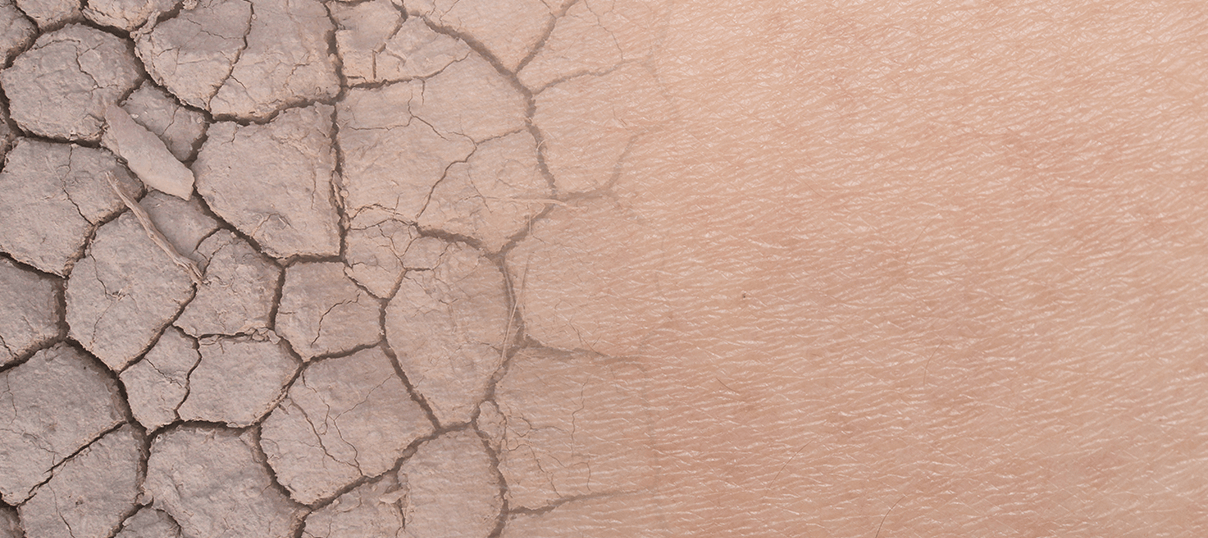Rough, tight-feeling, fragile, dry skin is skin that is dehydrated due to an imbalance in the hydrolipidic film that protects it. It becomes uncomfortable and loses its radiance. Good daily habits and targeted nourishing treatments are needed to restore its health and beauty.
Understanding dry skin
Under normal circumstances, our skin is covered by a thin film of sebum and sweat: the hydrolipidic film, which protects it from losing too much water, thus keeping it properly hydrated.
But occasionally, the hydrolipidic film becomes unbalanced through a lack of oil and/or water. The skin then becomes dry, rough to the touch, and uncomfortable. It lacks elasticity and suppleness and feels tight, especially after washing. It may also be itchy and redness or scaly patches may appear. As it is weakened, dry skin reacts strongly to external factors such as cold, heat, wind, grazes, etc.
Certain skin types are especially prone to dryness: fine and fair skin types, or mature skin types, as these produce less sebum and are less able to retain moisture. Nevertheless, all skin types may experience dry periods or patches, even thick and oily skin types.

Predisposing factors
Different factors can cause or aggravate skin dryness:
• Exposure to sunlight, cold, and sudden changes in temperature.
• Wind.
• Hot and dry air from indoor heating in winter.
• Pollution.
• Certain medical treatments.
• Cleaning products.
• Hot baths and harsh soaps, which dissolve part of the hydrolipidic film.ée des piscines.
• Chlorinated water in swimming pools.
• Leaving water to dry on the skin after washing, without wiping it off. • Certain nutritional deficiencies (vitamin A, essential fatty acids, trace elements, etc.).

Overcoming dry skin
Adopting suitable habits and using special treatments are often enough to restore comfort and suppleness to your skin:
• Avoid hot baths. Opt instead for quick showers under warm water.
• After washing, dry yourself carefully by patting your skin rather than rubbing it.
• Use a mild cleanser suited to dry skin (emollient-rich) when washing, and avoid soap.
• Moisturise each day and each time you wash your face and body, using a cream specifically formulated for dry skin.
• Always remove your make-up before going to bed, and if possible use a nourishing make-up remover (oil or milk).
• Drink at least 1.5 litres of water per day.
• Do not overheat your home or workplace in the wintertime. If need be, use an air humidifier.
• Wear gloves when cleaning.
• Eat a balanced diet. In particular, vary your oil consumption (olive, rapeseed, walnut, grape seed, etc.) to ensure you get the right amounts of essential fatty acids.
• Never go out in the sun without protection.
If your skin stays dry despite these precautions, or if your skin dryness is caused by eczema or psoriasis, see your skin specialist who will prescribe an appropriate treatment.



